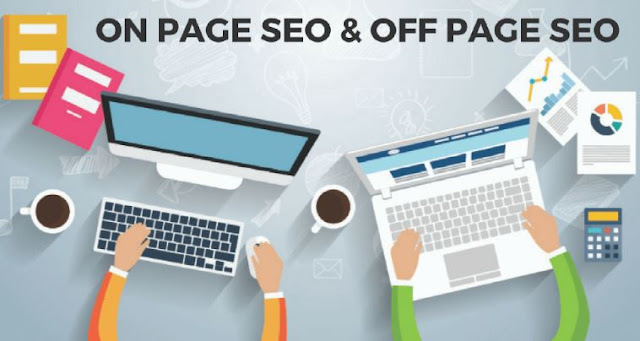
SEO means describing a set of processes that focus on optimizing a site for search engines. SEO is not only important for getting high-quality visitors from search but also improving the user-friendliness of your web page and increase its credibility.
Search Engine Optimization or SEO has been present ever since the internet went public. Since those days, businesses have been using it to bring traffic to their websites, reach new audiences, drive growth, and spread knowledge. However, SEO has since changed significantly. From stuffing multiple keywords into content and including several backlinks, it has evolved to become a more sophisticated practice using both off-page and on-page technique.
But what are Off-page and On-page Search Engine Optimization and how do digital marketers use them? Let us understand below.
About On-Page Search Engine Optimization
On-page SEO consists of all the on-site measures that you can employ to make sure your webpage ranks high on a search engine results page or SERP, and determine how well your page ranks. It uses the content as well as technical elements to enhance the quality of a page. Therefore, the more On-page Search Engine Optimization measures you conduct, the more relevant traffic you will get on your website.
Technical aspects include – title tags, URL structure, headings, alt text for images, internal links, site speed, responsiveness, meta description, keywords, etc. But, the most crucial aspect of On-page SEO is content, as it proves to be a massive influence for bringing traffic to your website.
Ideally, your content should be crisp, relevant, engaging, informative, and interesting. Content can come in several different forms, such as – web page copy, blogs, videos, podcasts, infographics, ebooks, whitepapers, case studies, interviews, reviews, original research, quizzes and poles, instructional articles, etc.
About Off-Page Search Engine Optimization
Off-page SEO refers to those activities that you perform away from your website to increase your ranking on SERP. The most common method in Off-page search engine optimization is link building; however, there are other ways as well such as social media and social bookmarking.
On-page SEO is present within the webpage, whereas Off-page search engine optimization takes place outside the page. So, if you are writing a guest post on another blog or leaving a comment with a link to your site, you are doing Off-page site promotion.
In the old days, trading or buying spammy backlinks to increase page rank was practised. But now, search engines have grown wiser towards such practices. Hence, filling your website with irrelevant backlinks will get you penalized.
Search engines are known to scrutinize both the quality and number of the backlinks. However, in the larger scheme of events, quality is more important than quantity. Therefore, a single quality backlink from a reliable website can hold more value than securing ten low-quality links. To begin with, you can use these strategies for link building:
● Writing guest blogs to mark yourself as an expert in the field.
● Mention influencers in your field in your content, as these posts are highly popular.
● Create multiple infographics as they are highly popular.
Also, a high-quality web site is more likely to have backlinks from other websites. It will have more mentions on social media (Facebook, Tweets, Pins, etc.), and is more likely to be shared among communities and be bookmarked by users.
Therefore, for successful high page rank and position on search engines, using Off-page and On-page SEOs efficiently are very important.
